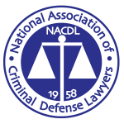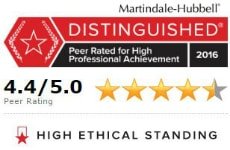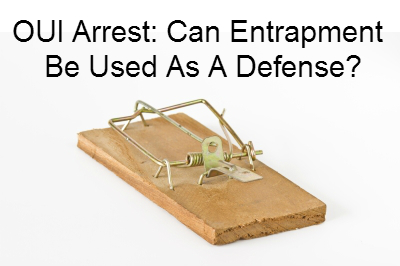The law and defense of “entrapment” is often misunderstood by the public as well as many lawyers. First, I will define what entrapment means. Second, I will give examples of what does not constitute entrapment. Finally, I will provide a good example of an OUI defense based on entrapment.
What is Entrapment?
Entrapment occurs when a person, acting under color of state law (usually a law enforcement officer or a confidential informant), induces a person to engage in a criminal act which that person was not otherwise predisposed to commit.
For those readers old enough to remember The Flip Wilson Show, entrapment is sometimes referred to as “the Devil made me do it” defense.
Entrapment has two components.
In order to require the judge to instruct the jury on the availability of the entrapment defense, the defense must “generate” that issue through the presentation of evidence. In other words, the defense must present evidence to satisfy the first prong: that a law enforcement officer or his proxy induced the defendant to engage in a criminal act.
The burden then shifts to the government to prove, beyond and to the exclusion of all reasonable doubt that the defendant was predisposed to engage in such activity.
Example: A confidential informant, acting on behalf of law enforcement, asks the defendant to sell drugs to him. The defendant does so. Certainly the first prong has been met by the defense. So, the burden shifts to the prosecution to show predisposition on the defendant’s part to sell drugs. The prosecution has confidential informant testify that he has purchased drugs from defendant on a weekly basis for the past ten years. If the jury believes that testimony, beyond a reasonable doubt, the entrapment defense fails.
Examples Scenarios That Are Not Entrapment
Example 1: You are at your city’s most popular “watering hole”. At 1:00 a.m. the local cops park nearby. As you leave the bar, having had too much to drink, you neglect to turn on your headlights. You always leave them on automatic, but your spouse borrowed the car that day and shut them to the “off” position. As soon as you hit the public roadway, you see blue lights behind you.
Yes, the cops were waiting outside of the local bar. Yes, they were clearly there to make drunken driving arrests. Yes, they may have working an “OUI Detail” (on a government grant and future grants will be allocated by the number of OUI arrests made pursuant to the present grant).
This is not entrapment!
What element is missing? Correct! There was no government inducement for you to drink and drive while impaired or over the legal limit.
Example 2: You drive erratically into a 7-11 parking lot at midnight. You stagger into the store and emerge with a Bud 12 pack. A cop sees all of this and calls to you as you are nearing your car. The cop says “Look, I could put you through field sobriety test right now, but I am not going to. Do you live close by? You do, great. Just take your beer and walk home. Do not drive.”
Ten minutes later, cop drives by and sees that your car is gone. He knows where you live via DMV registration check. The cop finds you pulling into your driveway. He arrests you and charges you with OUI after high breath test.
The entrapment defense does not work. Why not? Your prior actions show that you were predisposed to drive while impaired or over the legal limit. And, the cop certainly did not induce you to continue driving while you were under the influence; he merely gave you a break and some sage advice.
Under this type of scenario, you can expect an enhanced sentence if you lose at trial.
A Viable OUI Defense Based On Entrapment
Example: This case is a paraphrase of a real life successful entrapment defense in an OUI case defended by The Great Ted Hoch, Esq.
John Doe was at a bar at closing time when a fight broke out in the parking lot. John was not involved and the cops who arrived on the scene knew as much. The cops broke up the fight and ordered everyone to disperse (leave the bar premises). A cop approached John, who was sitting in his car with the engine off.
John was on his cell phone calling a cab. The cop ordered John to get himself and his car out of the parking lot. The cop could see that John was visibly intoxicated. John explained that the cab would arrive in a couple of minutes to pick up him and his passenger. The cop began a ten second countdown threatening to arrest John for failure to disperse (a misdemeanor crime) at the count of zero unless he and his car were gone by then.
Well, John began to back out of his parking space and was immediately stopped by the same cop. Field sobriety tests ensued. John was arrested and blew over the legal limit.
Ted Hoch invoked the entrapment defense. Verdict: Not Guilty. Prong one: Induced by cop to drive? Yes. Prong two: Was John otherwise predisposed to drive? No.
Were you entrapped? To discuss entrapment and all other defenses if you have been charged with OUI or any other criminal charge, call me for a free consultation at 207-879-4000. Our Portland office has moved to 1250 Forest Avenue, Portland, Maine 04103 and definitely check out the rest of website for more information.
Disclaimer: This article is intended to provide general, not specific, information about Maine law. The publication of this article does not constitute an attorney-client relationship between the author(s) and the reader(s).





